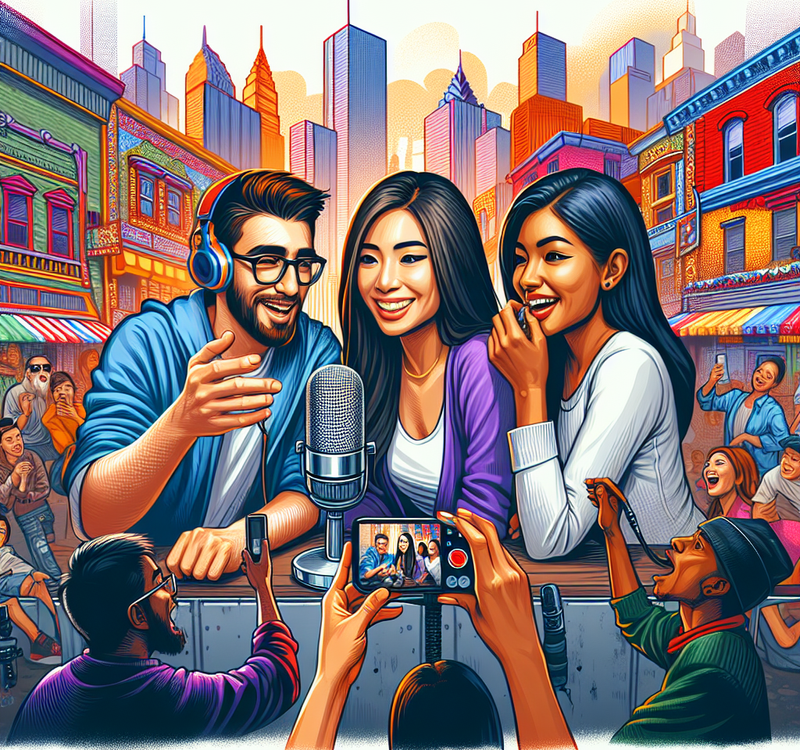How to Increase Your Social Media Followers Using Influencers: A Complete Guide
4 October، 2023
Monthly Celebrity Campaigns: Boosting Brand Visibility and Engagement
4 October، 2023Famous Sales Stores Leveraging Influencer Marketing for Success

Keywords: Famous Sales Stores Leveraging Influencer Marketing, influencer marketing case study, b2b influencer marketing case studies, nike influencer marketing case study, influencer marketing case studies 2023, influencer marketing growth statistics, most successful influencer marketing campaigns, successful micro influencer campaigns, impact of influencer marketing on consumer behaviour
Introduction:
In today’s digital age, influencer marketing has become a powerful tool for businesses to reach their target audience and boost their sales. Influencer marketing involves collaborating with individuals who have a significant following on social media platforms and are considered experts or influencers in their field. It has proven to be highly effective in driving conversions and achieving a high return on investment (ROI) for brands. This article will explore how famous sales stores are leveraging influencer marketing for success, backed by case studies, growth statistics, and successful campaigns.
Famous Sales Stores Benefiting from Influencer Marketing:
Heading 1: The Rise of Influencer Marketing in the Retail Industry
Retailers across various sectors have recognized the immense potential of influencer marketing in connecting with their customers. Prior to the COVID-19 pandemic, more than two-thirds of North American retailers were already utilizing some form of influencer marketing [2]. With the increase in e-commerce and evolving consumer behavior, influencer marketing is expected to play an even more significant role in post-pandemic retail strategies.
Subheading 1:1: Successful Influencer Marketing Campaigns in Retail
{SEARCH_RESULTS}
Heading 2: The Impact of Influencer Marketing on Consumer Behavior
Influencer marketing has a profound impact on consumer behavior. When consumers see their favorite influencers endorsing a product or brand, it creates a sense of trust and credibility. Research shows that consumers are more likely to make a purchase based on recommendations from influencers they follow. Influencers act as social proof, validating the quality and desirability of products or services.
Subheading 2:1: Influencer Marketing Case Studies: Driving Conversions and Sales
{SEARCH_RESULTS}
Heading 3: The Key Sectors Benefiting Most from Influencer Marketing
While influencer marketing can be effective for businesses across various industries, certain sectors have seen exceptional results. The fashion and beauty industry, for example, has witnessed tremendous success through influencer collaborations. Influencers can showcase clothing, accessories, and beauty products in a relatable and aspirational way, leading to increased brand engagement and sales. Other sectors such as travel, food, and fitness have also harnessed the power of influencer marketing to boost their reach and amplify their messaging.
Subheading 3.1: B2B Influencer Marketing: A Strategy for Success
B2B businesses have also recognized the value of influencer marketing in their marketing strategies. By collaborating with subject matter experts or industry leaders, B2B brands can establish thought leadership, increase brand awareness, and drive revenues. However, it is essential for businesses to align their influencer campaigns with their corporate objectives and develop effective strategies that resonate with their target audience [3].
Heading 4: Brands at the Forefront of Influencer Marketing Success
Several well-known brands have adopted influencer marketing as a key component of their marketing strategies. Nike, for example, has successfully utilized influencer marketing to connect with their target audience and promote their athletic apparel and footwear. By partnering with well-known athletes and fitness influencers, Nike has been able to create an authentic and aspirational image, driving sales and brand loyalty.
Subheading 4.1: Micro-influencer Marketing: Success in Small Packages
Micro-influencers, with smaller but highly engaged follower bases, have proven to be effective in driving brand awareness and engagement. Their strong connections with their followers and niche expertise make them valuable assets for brands looking to reach a specific audience. By working with micro-influencers, brands can tap into highly targeted communities and achieve impressive results.
Conclusion:
Influencer marketing has become a game-changer for famous sales stores in driving brand awareness, engagement, and sales. By leveraging the power of influencers, retailers across various sectors have been able to effectively connect with their target audience and boost their bottom line. Influencer marketing is not limited to B2C brands; it also holds immense value for B2B companies, allowing them to establish thought leadership and drive revenue. This form of marketing has revolutionized consumer behavior and has become an integral part of marketing strategies. As the influencer marketing industry continues to evolve, it is crucial for businesses to stay up-to-date with the latest trends and best practices to leverage its full potential.
FAQs:
1.
2.
3.
4.
5.



